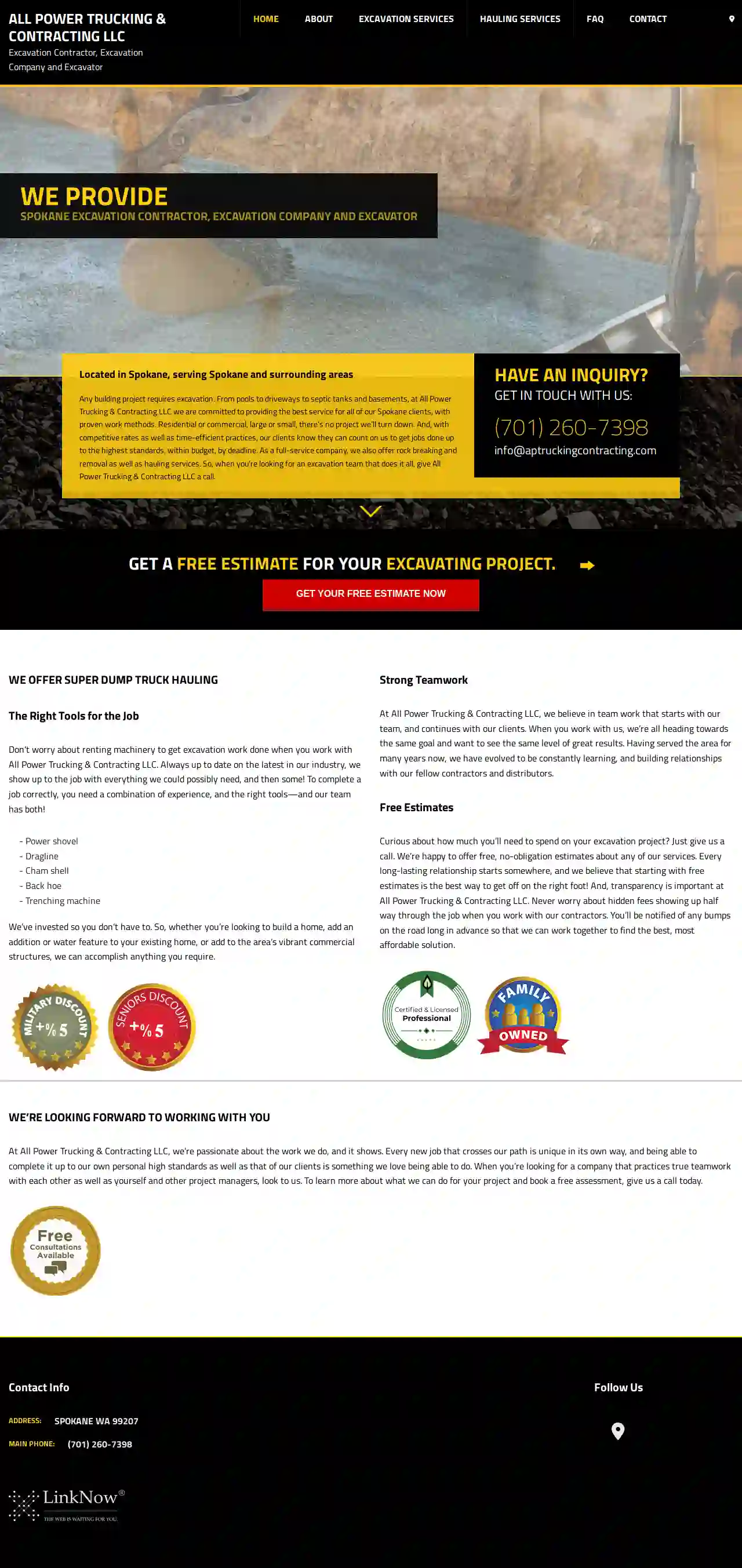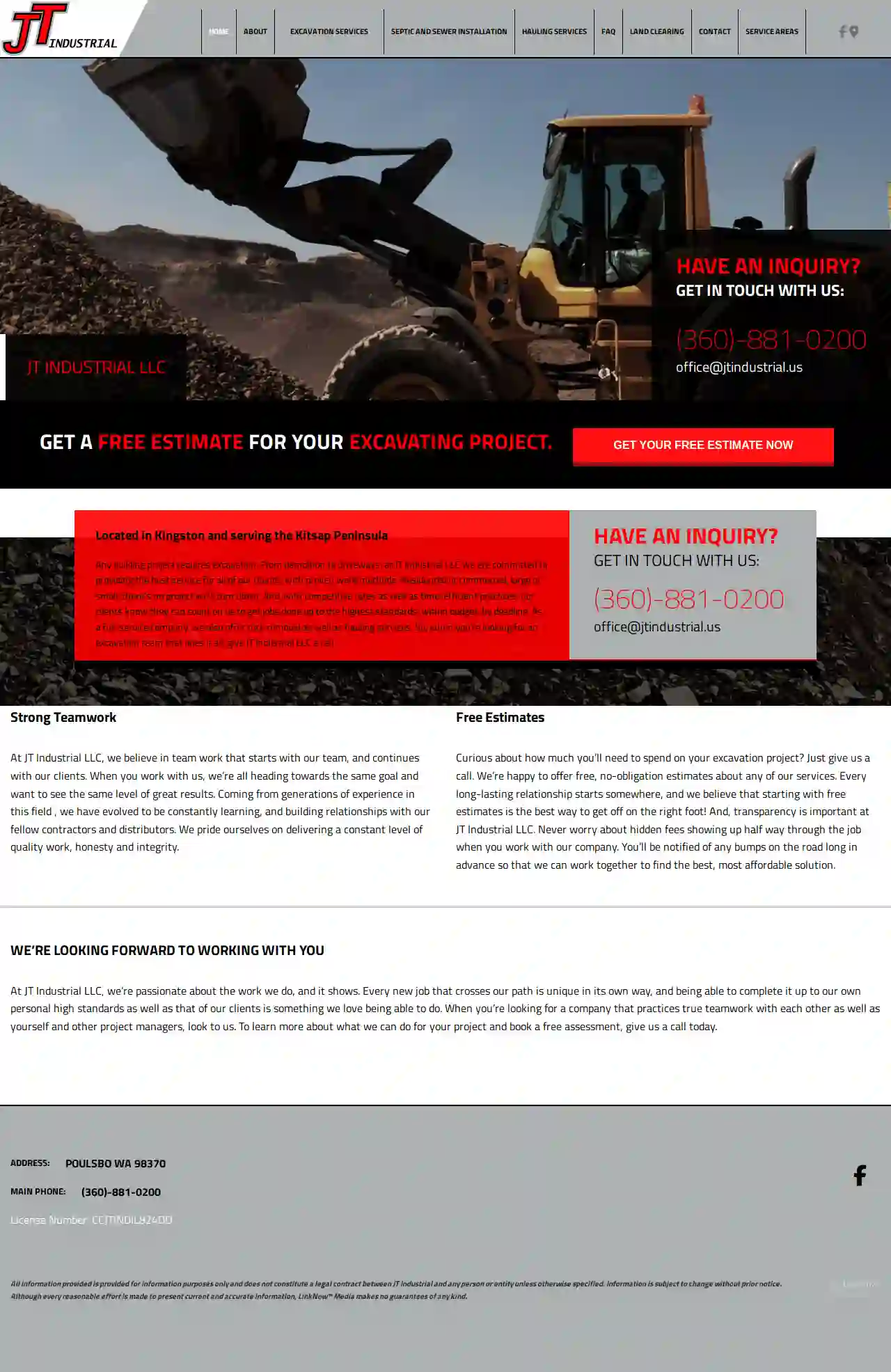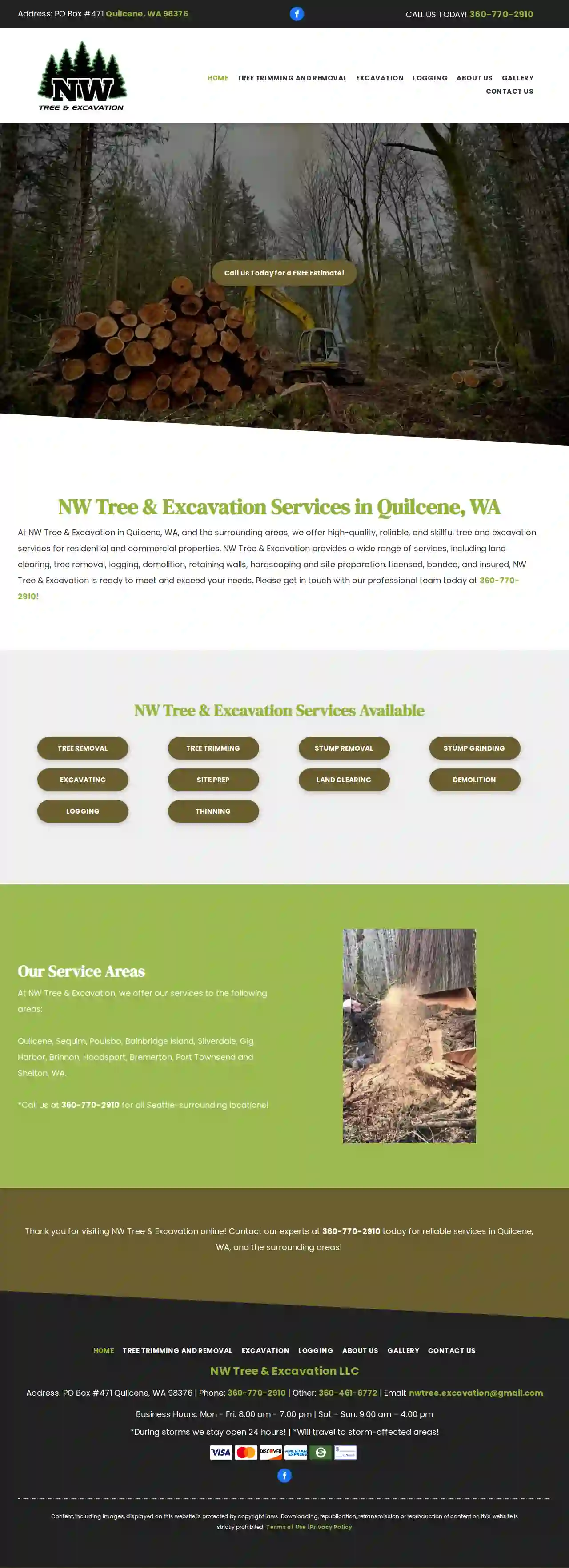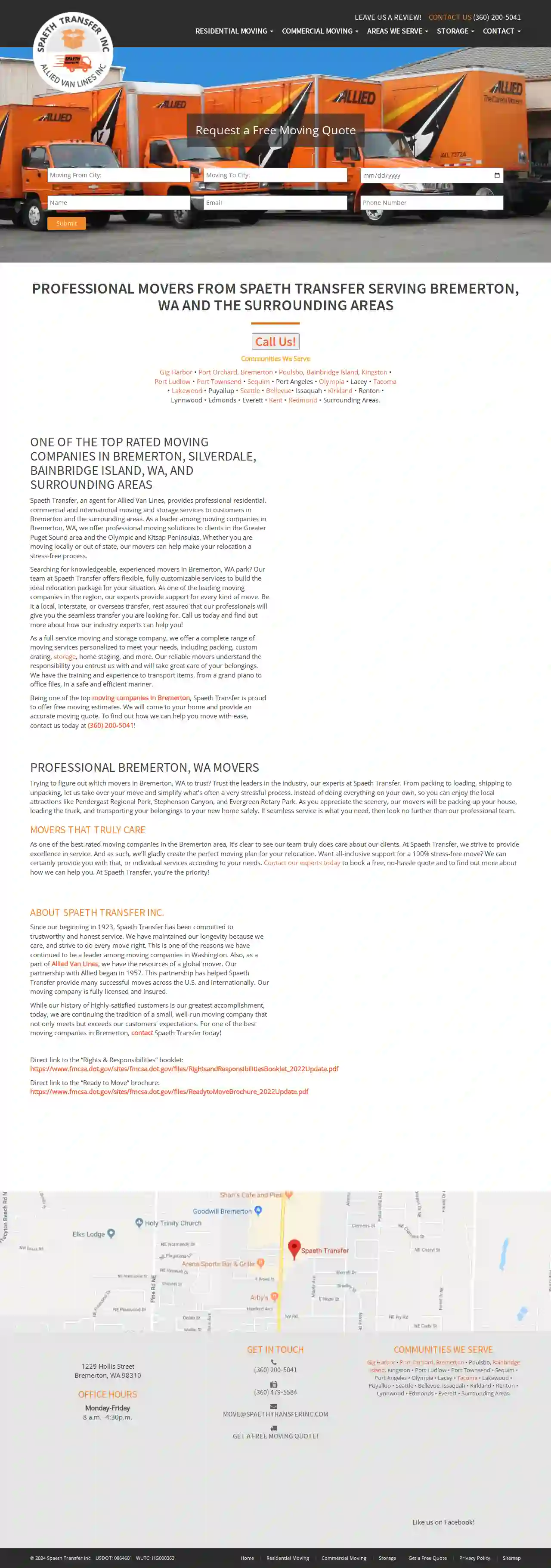Demolition Contractors Mukilteo
Best Structure Demolition in Mukilteo
Receive up to 3 Demolition Contractors Near Me quotes for your project today! Compare profiles, reviews, accreditations, portfolio, etc... and choose the best service.

Shaw Island Excavation LLC
52 reviewsShaw Island WA, Shaw Island, 98286, USShaw Island Excavation LLC: Your Trusted Excavation Partner Shaw Island Excavation LLC is a leading excavation contractor serving Shaw Island, Orcas Island, Lopez Island, and surrounding areas. We specialize in a wide range of excavation services, including site preparation, demolition, pond digging, rock removal, septic tank installation, and more. Our team of experienced professionals is dedicated to providing high-quality workmanship, exceptional customer service, and competitive pricing. We understand that every excavation project is unique, and we take a personalized approach to ensure that your needs are met. We work closely with our clients to develop a plan that meets their specific requirements and budget. Our commitment to safety and environmental responsibility is unwavering, and we strive to minimize disruption to your property during the excavation process. Whether you're a homeowner, builder, or developer, Shaw Island Excavation LLC is your trusted partner for all your excavation needs. Contact us today for a free consultation and let us help you bring your project to life.
- Services
- Why Us?
- Gallery
Get Quote
All Power Trucking & Contracting LLC
Spokane, 99207, USAll Power Trucking & Contracting LLC: Your Trusted Excavation Partner in Spokane At All Power Trucking & Contracting LLC, we are your one-stop shop for all your excavation needs in Spokane, WA, and surrounding areas. Whether you're a homeowner looking to build a dream pool or a commercial developer undertaking a large-scale project, we have the expertise, equipment, and commitment to deliver exceptional results. Why Choose All Power Trucking & Contracting LLC? Experienced and Reliable: We have a proven track record of delivering high-quality excavation services, earning the trust of countless satisfied clients. Full-Service Solutions: From excavation and demolition to hauling and rock breaking, we offer a comprehensive range of services to meet all your project requirements. Commitment to Excellence: We are dedicated to providing exceptional customer service, meticulous workmanship, and timely project completion. Competitive Rates: We offer competitive pricing without compromising on quality, ensuring you get the best value for your investment. Modern Equipment: We invest in the latest excavation equipment to ensure efficiency, precision, and safety on every job. Strong Teamwork: We believe in collaborative partnerships with our clients, working together to achieve shared goals and deliver outstanding results. Our Services Excavation Services Paving Services Demolition Driveway Excavation Pond Digging and Filling Garden Excavation Pool Digging Pool Filling In Cisterns Septic Tanks Sewers / Underground Utilities Basement Walkouts Rock Breaking and Removal Hauling Services Get a Free Estimate Today Don't hesitate to contact us for a free, no-obligation estimate on your excavation project. We're here to answer your questions and provide expert advice to help you make informed decisions.
- Services
- Why Us?
- Gallery
Get Quote
Level Earthworks LLC
52 reviews1202 Black Lake blvd ste c, Olympia, 98502, USLevel Earthworks LLC Level Earthworks is ready to help you make your dream property come to life. We offer a wide range of services, from site development and land clearing to demolition and snow removal. We are committed to providing our clients with the highest quality workmanship at an affordable price. We are also committed to safety and will always work to ensure that your project is completed safely and efficiently. We are a locally owned and operated business with over 15 years of experience in the industry. We are fully licensed and insured and have a proven track record of success. We are dedicated to providing our clients with the best possible service and will always go the extra mile to ensure that you are satisfied with our work. We offer free estimates and are available to answer any questions you may have. Call us today to schedule your free estimate and let us help you make your dream property a reality. We are committed to providing our clients with the highest quality workmanship at an affordable price. We are also committed to safety and will always work to ensure that your project is completed safely and efficiently. We are a locally owned and operated business with over 15 years of experience in the industry. We are fully licensed and insured and have a proven track record of success. We are dedicated to providing our clients with the best possible service and will always go the extra mile to ensure that you are satisfied with our work. We offer free estimates and are available to answer any questions you may have. Call us today to schedule your free estimate and let us help you make your dream property a reality.
- Services
- Why Us?
- Gallery
Get Quote
JT Industrial LLC
8202 NE State Hwy 104, #102-278, Poulsbo WA, Kingston, 98370, USJT Industrial LLC: Your Trusted Excavation Partner JT Industrial LLC is your go-to excavation company for all your construction needs on the Kitsap Peninsula. We specialize in a wide range of services, from demolition and driveways to rock removal and hauling. Whether you're a homeowner or a commercial developer, we're committed to providing exceptional service and delivering projects to the highest standards, on time and within budget. Our team brings generations of experience and a dedication to continuous learning. We believe in strong teamwork, not just within our company but also with our clients and fellow contractors. We strive for transparency and honesty, offering free, no-obligation estimates to ensure you're fully informed about your project costs. At JT Industrial LLC, we're passionate about what we do. Every project is unique, and we take pride in delivering results that exceed expectations. If you're looking for a reliable and experienced excavation team that values teamwork and integrity, look no further. Contact us today for a free assessment and let us help you bring your vision to life.
- Services
- Why Us?
- Gallery
Get Quote
Avey Construction Group
51 reviews5 Mile Prairie, Spokane, USBuilding Beyond Expectations At Avey Construction Group, our driving force is the relentless pursuit of excellence in every project we undertake. Founded in Spokane, Washington, out of a need to fill the gaps in the construction industry, we've evolved into a dynamic team committed to delivering top-notch services. Owned and operated by partners Justin Avey, Eric Morman and Chris Gruben, our teams unique and diverse expertise provides our clients with an unparalleled product and experience that is lacking in the construction scene. Since our inception, we've collaborated with skilled professionals and forged partnerships that have propelled us forward. From renovation and remodeling to concrete work and ADU construction, our diverse portfolio reflects our dedication to versatility and innovation. Each project is approached with enthusiasm and a commitment to exceeding expectations. We're more than just builders; we're partners invested in our clients' success. At Avey Construction Group, we're proud to be your trusted construction partner, driving excellence in every endeavor.
- Services
- Why Us?
- Our Team
- Gallery
Get Quote
NW Tree & Excavation LLC
513 reviewsPO Box #471, Quilcene, 98376, USNW Tree & Excavation: Your Trusted Partner for Tree and Excavation Services in Quilcene, WA At NW Tree & Excavation in Quilcene, WA, and the surrounding areas, we offer high-quality, reliable, and skillful tree and excavation services for residential and commercial properties. We are committed to providing exceptional service and exceeding your expectations. Our team of experienced professionals is dedicated to delivering safe and efficient solutions for all your tree and excavation needs. Whether you require tree removal, land clearing, stump grinding, or site preparation, we have the expertise and equipment to handle any project, big or small. We understand the importance of preserving the natural beauty of your property. That's why we use environmentally friendly practices and strive to minimize disruption during our operations. Contact us today for a free estimate and let us help you transform your property into the outdoor oasis you've always dreamed of.
- Services
- Why Us?
- Gallery
Get Quote
Alex's Landscaping & Excavating
53 reviews5499 NE Laura Loop, Poulsbo, 98370, USOur Mission Our mission at Alex’s Landscaping & Excavating is to provide high quality landscape design and care through unparalleled quality, responsible service, and timely solutions at great prices. Our Vision Our vision at Alex’s Landscaping & Excavating is to become the most-sought after landscaping service providers in the entire area by offering responsible garden maintenance and friendly services at competitive prices. Why Choose Us? Choosing Alex’s Landscaping & Excavating is the equivalent of choosing exceptional landscaping design, care, and maintenance at prices that fit your budget.
- Services
- Why Us?
- Gallery
Get Quote
Kalin Excavating
4.649 reviewsSpokane, USTrenchless Sewer & Water The go-to choice for residential and commercial clients Your Go-To Choice With over 30 years of experience, Kalin has become a trusted name in the industry for installing sewer and water lines in Spokane and the surrounding region. Expertise when and where it counts Knowledge & Experience Over 30 years solving problems specific to Spokane and the surrounding region Leading the way in the latest sewer technology Highly trained crews and technicians Family owned and operated Traditional Excavation and Trenchless The Right Tools for the Job As a superior alternative to pipe bursting, lining has become the preferred choice for Spokane homeowners. In response to this demand, we expanded our lining capabilities by introducing the latest lining technology in the summer of 2023. This state-of-the-art equipment enables us to line pipes from the basement and offers enhanced flexibility in re-lining a wider variety of pipes.
- Services
- Why Us?
- Testimonials
- Gallery
Get Quote
Spaeth Transfer
4.6139 reviews1229 Hollis Street, Bremerton, 98310, USSpaeth Transfer: Your Trusted Bremerton Moving Company Spaeth Transfer, an Allied Van Lines agent, is your premier choice for professional moving and storage services in Bremerton, WA, and the surrounding areas. We've been serving the Greater Puget Sound area, the Olympic and Kitsap Peninsulas for years, building a reputation for reliability, expertise, and customer satisfaction. Whether you're moving locally, across the state, or internationally, our team of experienced movers is dedicated to making your relocation smooth and stress-free. We offer a comprehensive range of services, including packing, custom crating, storage, and home staging, tailored to meet your specific needs. We understand that your belongings are precious, and we treat them with the utmost care. Our movers are highly trained and experienced in handling everything from delicate antiques to heavy furniture, ensuring safe and efficient transportation. As a testament to our commitment to excellence, we offer free moving estimates. We'll come to your home, assess your needs, and provide you with an accurate quote. Contact us today at (360) 200-5041 to learn more about how we can help you move with ease.
- Services
- Why Us?
- Gallery
Get Quote
Coulson Excavation and Construction LLC
Spokane, USCoulson Excavation and Construction LLC Coulson Excavation and Construction LLC is dedicated to providing high-quality excavation and construction services to residential, commercial, and industrial clients. With experienced operators and state-of-the-art equipment, the company delivers safe, efficient, and reliable solutions for even the most complex projects.
- Services
- Why Us?
- Gallery
Get Quote
Over 22,076+ Excavation Companies onboarded
Our excavation pros operate in Mukilteo & surrounding areas!
ExcavationHQ has curated and vetted Top Excavation Contractors arround Mukilteo. Find a reliable contractor today.
Frequently Asked Questions About Demolition Contractors
- Enclosure: Sealing off the asbestos-containing material to prevent fiber release.
- Encapsulation: Coating the asbestos-containing material with a sealant to bind the fibers.
- Removal: Carefully removing the asbestos-containing material and disposing of it safely.
- Waste Generation: Demolition generates a large volume of debris, contributing to landfill space and potentially releasing harmful substances into the environment if not disposed of properly.
- Air Pollution: Dust and particulate matter released during demolition can impact air quality, affecting human health and the environment.
- Noise Pollution: Demolition activities can generate significant noise, disturbing nearby residents and wildlife.
- Resource Depletion: Demolition consumes resources that could be salvaged and reused, contributing to resource depletion and environmental degradation.
What is a demolition bond?
What are the different methods of asbestos abatement?
How long does a demolition project take?
What are the environmental impacts of demolition?
What is a demolition bond?
What are the different methods of asbestos abatement?
- Enclosure: Sealing off the asbestos-containing material to prevent fiber release.
- Encapsulation: Coating the asbestos-containing material with a sealant to bind the fibers.
- Removal: Carefully removing the asbestos-containing material and disposing of it safely.
How long does a demolition project take?
What are the environmental impacts of demolition?
- Waste Generation: Demolition generates a large volume of debris, contributing to landfill space and potentially releasing harmful substances into the environment if not disposed of properly.
- Air Pollution: Dust and particulate matter released during demolition can impact air quality, affecting human health and the environment.
- Noise Pollution: Demolition activities can generate significant noise, disturbing nearby residents and wildlife.
- Resource Depletion: Demolition consumes resources that could be salvaged and reused, contributing to resource depletion and environmental degradation.